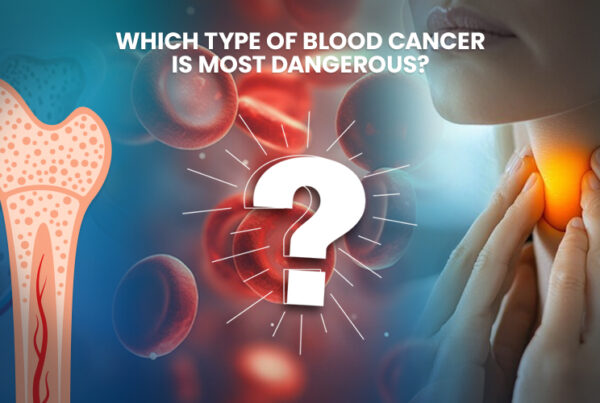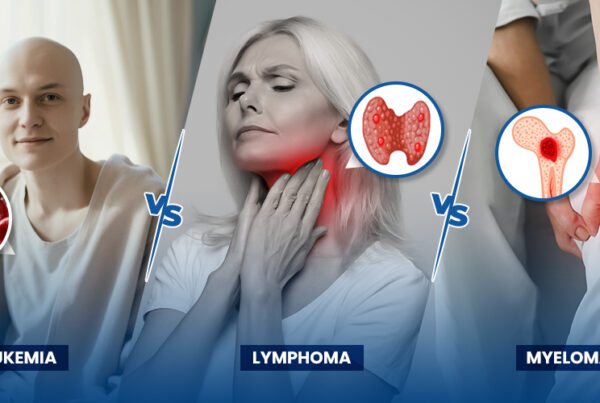
Introduction
Have you ever wondered what happens when a new drug lands on the market? How do scientists know that it is effective and safe for public use? What if the drug triggers an immune response or disturbs your metabolic pathway? There is a way to test the efficacy of drugs with animal testing, but it is unreliable as human systems are way more complicated than animals.
Therefore, clinical trials are the ultimate solution for testing a drug. This parameter shows the importance of clinical trials, which are detailed in this guide.
Why are Clinical Trials So Important?
Did you know that the past three decades have seen mass progress in oncology, and it owes to clinical research in oncology? This factor highlights the importance of clinical trials in oncology. These clinical trials aim to discover new and better treatments. Patients who join these studies get access to the advancements in cancer care created by the country’s top cancer experts.
However, you might wonder who is eligible for cancer clinical trials. What are oncology clinical trials? Get to know these in the sections below.
Importance of Clinical Trials
Clinical trials help to check the safety and efficacy of new drugs. Clinical trials are to check new surgical instruments, procedures, or devices. Additionally, it improves life quality by updating existing therapies.
The importance of clinical trials is evident from the points below:
- They demonstrate how well-performing novel cancer therapies are.
- They give cancer patients options while enabling medical professionals to enhance the detection, diagnosis, and treatment. It highlights the importance of clinical trials in oncology.
- Those taking part in these trials can also access the most recent advancements made in the country.
- Future generations may profit from clinical trials.
- One of the primary benefits for participants is access to new, potentially life-saving treatments before they are widely available.
- Participants in clinical trials contribute to the advancement of medical science.
- They lead to the development of new treatments and vaccines, improve existing therapies, and enhance our understanding of health and disease.
- Moreover, researchers who cannot learn in a lab or on animals can learn what works and doesn’t work in humans through clinical trials.
- Participants with illnesses can contribute to improving research and finding ways for more effective treatments.
- Many people find hope in clinical trials, which also allow researchers to help discover future treatments that will work better for others.
- Finally, clinical physicians can also determine whether a new treatment’s side effects are tolerable while considering its possible benefits through clinical trials.
Who is Eligible for Cancer Clinical Trials?
The importance of clinical trials in oncology is evident. However, you might wonder who is eligible for cancer clinical trials.
Patients at any stage of cancer can participate in clinical trials. To protect patients, the qualifying requirements may include the patient’s age, gender, cancer kind, stage, medical history, and general health. Moreover, your doctor is the person who will inform you about your treatment options.
What are Oncology Clinical Trials?
If you are unaware of the clinical trials in oncology, let us disclose this to you.
Oncology clinical trials are research studies focused on finding better ways to prevent, diagnose, and treat cancer. These trials test new treatments, drugs, and therapies to determine their safety and effectiveness. Participants in oncology clinical trials might receive cutting-edge therapies before they are widely available and contribute to scientific knowledge that can help future cancer patients. These trials are essential for advancing cancer care and improving patient outcomes.
How Clinical Trials Work for Cancer?
Let’s see how clinical trials work for cancer. As we have observed the importance of clinical trials, let’s decipher if they have any significance in cancer therapies.
Cancer treatments and therapies are tested in clinical trials to determine their safety and effectiveness. These trials are typically conducted in phases, starting with a small group of participants to assess safety (Phase I), followed by certain groups to evaluate efficacy and side effects (Phase II). In Phase III, the new treatment is compared to existing standard ones to see if it performs better. If successful, the treatment moves to Phase IV, where we study their long-term effects after approval. Healthcare professionals closely monitor patients during these phases to ensure their safety and gather detailed data on the treatment’s impact on cancer.
The Future of Clinical Trials
As the diseases spread, the need for clinical trials becomes more pressing. However, with the integration of artificial intelligence and updated technology, the trails are also upgrading.
Technological Advancements
Technology is transforming clinical trials, making them more efficient and accessible. Artificial Intelligence (AI) and machine learning can enhance data analysis, patient recruitment, and trial design. Telemedicine and virtual trials are also becoming more common, allowing participants to take part from the comfort of their homes.
Personalized Medicine
Clinical trials will be crucial for individualized therapy in the future. By customizing medications based on individual genetic profiles, researchers can create more precise and potent treatments. This strategy reduces the chance of side effects while improving treatment outcomes.
Global Collaboration
Global collaboration is essential for the future of clinical trials. International trials and global health initiatives enable researchers to study treatments in diverse populations and share knowledge across borders. This collaboration can accelerate the development of new therapies and improve global health outcomes.
Challenges and Misconceptions
As we have seen the importance of clinical trials, let’s glance at the associated misconceptions. There are several ones about clinical trials that can deter participation. Many people fear that clinical trials are unsafe or they will be used as “guinea pigs.” However, clinical trials are under strict regulatory oversight, and participant safety is the top priority.
Recruiting participants for clinical trials is often a significant challenge. Diverse participation is essential to ensure trial results apply to the broader population. Strategies to improve enrollment include public awareness campaigns and community engagement initiatives.
Additionally, some associated barriers span logistics, financial, and social barriers. However, clinical trials are unmatched in importance.
Barriers may include the distance to trial sites, time commitment, lack of insurance coverage, and mistrust of the medical research process. Addressing these challenges is essential to the progress of clinical studies.
Also Read: Exploring the Benefits of Clinical Research, Its Types, and Scope in Cancer Care
Conclusion
To conclude, clinical trials are crucial to medical research. They have become an integral part of science by offering hope for new treatments, improving existing therapies, and enhancing awareness. They ensure patient safety through rigorous ethical standards and regulatory oversight. Participants in oncology clinical trials benefit from access to cutting-edge treatments and contribute significantly to scientific knowledge and public health. Despite challenges and misconceptions, the future of clinical trials is promising, with technological advancements, personalized medicine, and global collaboration paving the way for continued progress.







